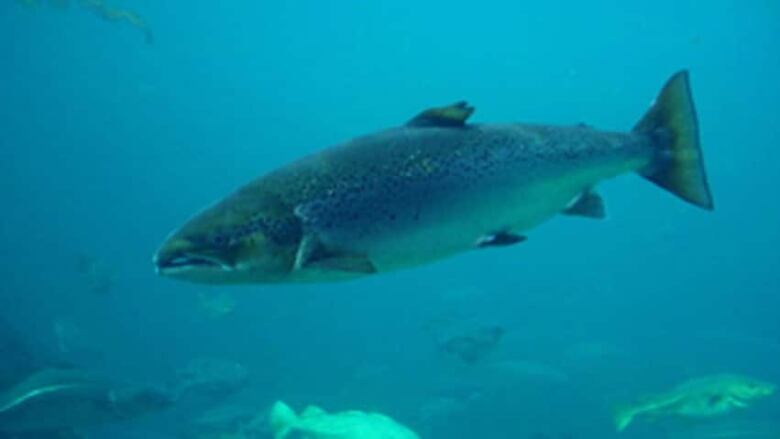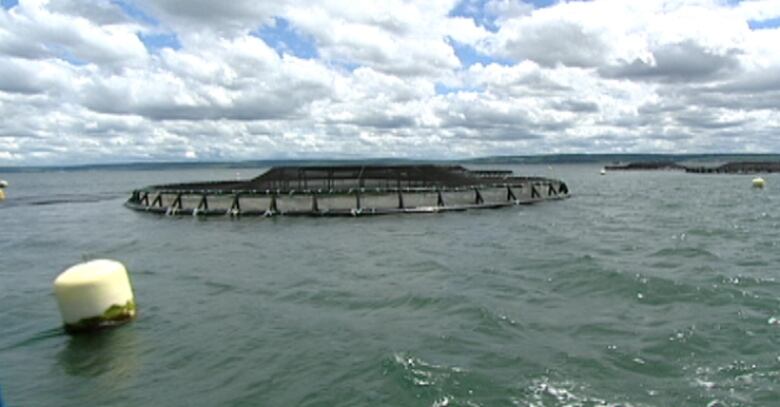Senator supports fish farm boost despite environmental impact
Senate committee calls on federal government to grow Canada's aquaculture industry

An Atlantic Canada senator is defending a report supporting the expansion of the Canadian aquaculture industry, while acknowledging worries about the safety of fish farms.
The Senate Fisheries and Oceans committee released an updated version of its study, An Ocean of Opportunities: Aquaculture in Canada, earlier this week.
"It is a billion-dollar industry in Canada, and it's got great potential for growth," committee deputy chair Senator Elizabeth Hubley told CBC's Information Morning on Thursday.
Open communication
Environmental critics have warned against the expansion of open net pen finfish aquaculture. Nova Scotia's Ecology Action Centre has argued this type of fish farming would harm the province's marine ecosystems through waste effluent, disease, sea lice outbreaks and toxic pesticide use.
The committee would support growing the industry only with certain conditions, outlined in 10 recommendations, said Hubley, who is from Prince Edward Island.
Those emphasize "social licence," or open communication between industry, communities, environmentalists and Indigenous groups.

Salmon interbreeding impact
More than 140 witnesses gave feedback across Canada, mostly positive toward industry expansion, Hubley said.
Respondents in British Columbia and Nova Scotia, provinces with large fisheries and ocean frontage, expressed the majority of worries, primarily around sustainability and safety, she said.
Many spoke about Nova Scotia's farmed Atlantic salmon, which represent three-quarters of the province's farmed fish, escaping and interbreeding with wild salmon a concern Hubley said isn't unfounded.
"There's not only Canadian studies, but there's Norwegian studies that confirm that such interbreeding has reduced the next generation's ability to survive in the wild," she said.
"The concern is greater if the status of the fish population is endangered or threatened."
Calls for new legislation
The committee of 11 visited Norway, Scotland and six Canadian provinces to determine the strengths and pitfalls of existing aquaculture practices, and how Canada can model its aquaculture legislation on Norwegian and Scottish examples.
Members would like federal support for condensing about 70 different pieces of federal and provincial legislation around fish farming into one act.
"The Fisheries Act that we now operate under is not a new piece of legislation," Hubley said.
"It is aged, and it should be revised."
The committee first released a one-volume version of the study during the 2015 federal election, so is planning to meet with Canada's current Fisheries and Oceans Minister Dominic LeBlanc. The three-volume report was updated in June, and released Monday ahead of that meeting.
With files from CBCs Information Morning












_(720p).jpg)


 OFFICIAL HD MUSIC VIDEO.jpg)
.jpg)



























































































